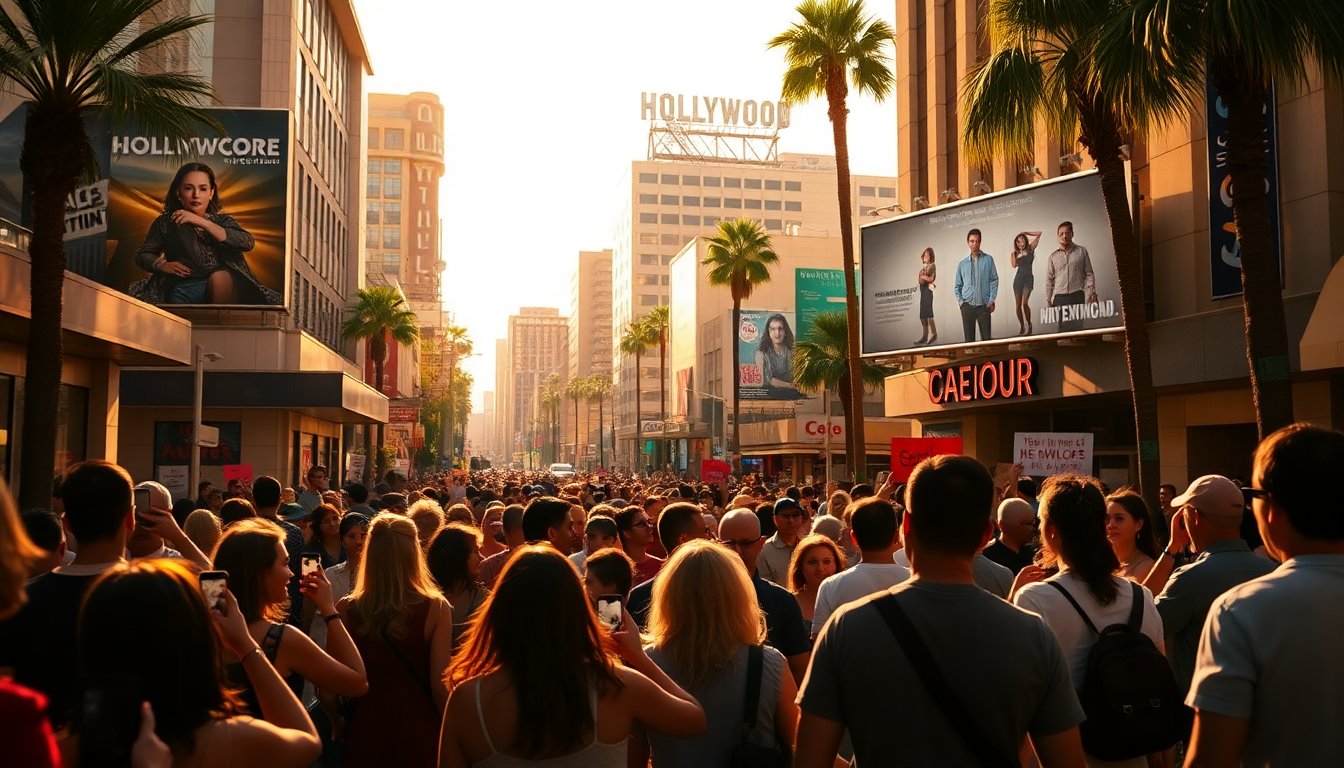Table of Contents
The world of American celebrity culture is a multifaceted domain where fame, media, and societal dynamics converge. Over the years, the definition of celebrity has evolved significantly, influenced by technological advancements, shifting public interests, and the rise of social media. This article examines the intricate layers of fame in America, exploring how celebrities shape cultural narratives and their broader implications for society.
The Rise of Celebrity Culture
Historically, the concept of celebrity has its roots in the entertainment industry, where actors, musicians, and athletes have captivated audiences for decades. However, the advent of the internet and social media has transformed the landscape of fame. Today, individuals can achieve celebrity status overnight, often bypassing traditional pathways. Platforms like Instagram, TikTok, and YouTube have given rise to a new category of stars known as influencers, who leverage their popularity to shape trends and opinions.
Influencers and the Democratization of Fame
The emergence of influencers signifies a notable shift in the celebrity culture landscape. Unlike traditional Hollywood stars, these individuals often cultivate their brands directly with their audiences, fostering a sense of intimacy and authenticity. This democratization of fame enables a diverse range of voices and talents to flourish, challenging the traditional gatekeepers of the entertainment industry.
Moreover, influencers are perceived as more relatable than conventional celebrities. They share their lives in a manner that feels accessible, resonating with a generation that values transparency and connection. This change has also led to the rise of micro-influencers, who, despite having smaller followings, often achieve significant engagement rates and loyalty from their audiences.
The Impact of Social Media on Celebrity Culture
Social media has revolutionized the way celebrities interact with the public. Previously, fans relied on tabloids and television appearances to glimpse the lives of their favorite stars. Now, platforms like Twitter and Instagram allow celebrities to share their personal experiences in real-time, fostering a direct connection with their fans.
Creating a Curated Persona
Many celebrities utilize social media to construct a curated persona, often showcasing their achievements, lifestyle, and personal beliefs. This carefully crafted image can significantly influence their public perception and brand partnerships. However, it also presents challenges; the pressure to maintain this façade can lead to mental health struggles and questions of authenticity.
The constant need for engagement can blur the lines between public and private life, resulting in a phenomenon known as oversharing. Celebrities frequently face backlash for their actions, and the immediate feedback from social media can amplify this scrutiny, impacting both their careers and personal lives.
The Societal Implications of Celebrity Culture
As American celebrity culture continues to evolve, its societal implications are increasingly relevant. Celebrities often wield considerable influence over public opinion, fashion trends, and even political movements. The role of celebrity as a social commentator has gained prominence, with many leveraging their platforms to advocate for social causes.
Fame as a Vehicle for Social Change
In recent years, celebrities have actively engaged with significant social issues, ranging from climate change to racial equality. Figures like Leonardo DiCaprio and Oprah Winfrey have utilized their fame to raise awareness and drive change, showcasing the potential of celebrity activism. This trend raises questions about the responsibilities of public figures and their impact on their followers.
However, this influence can be a double-edged sword. The spread of misinformation and superficial activism, often referred to as slacktivism, can mislead audiences and detract from genuine efforts. The challenge lies in discerning which celebrity-driven movements are authentic and which are merely performative.
Historically, the concept of celebrity has its roots in the entertainment industry, where actors, musicians, and athletes have captivated audiences for decades. However, the advent of the internet and social media has transformed the landscape of fame. Today, individuals can achieve celebrity status overnight, often bypassing traditional pathways. Platforms like Instagram, TikTok, and YouTube have given rise to a new category of stars known as influencers, who leverage their popularity to shape trends and opinions.0


